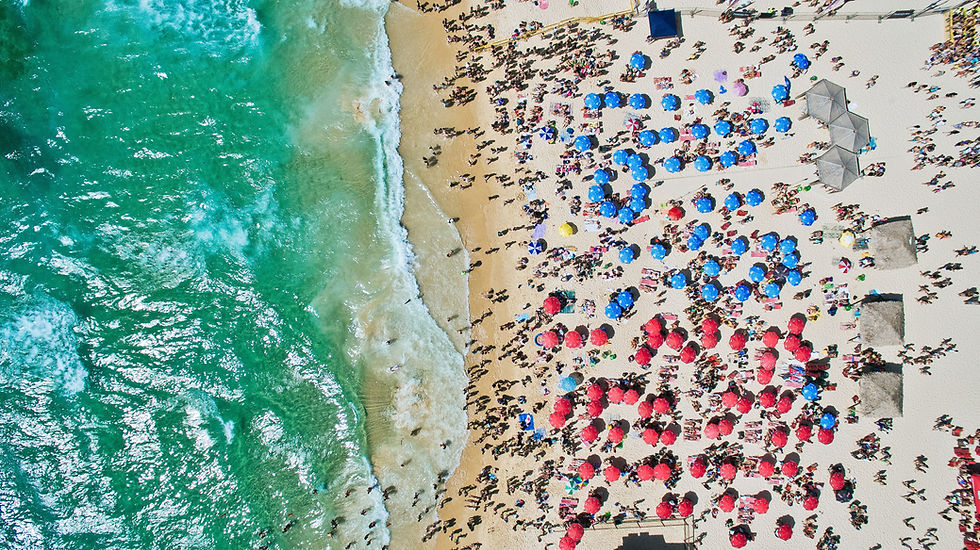Summer holidays and our adventurous trips
- M. Constantin
- Jul 19, 2023
- 2 min read
In this hot summer we should probably reflect more deeply and rethink the notion of travel. Today it has lost its exceptional, adventurous character. It has become a commonplace. We are moving to the mass travels, repeated more and more frequently, and closer to the weekend fun than to the ideal of an initiatory trip, to the idea of enriching knowledge, personal understanding, and to generate meaningful ideas and connections. Or maybe we perceive the congestion on the roads, the traffic jams, plane flight delays as the wonderful adventures of our days? Adventures that become trivial day by day, along with our daily aspirations and plans. But let's not forget the other side of our times, certainly extreme phenomena can offer us tragic adventures such as devastating fires, extensive floods, landslides, tornadoes, etc. Maybe the Nature offers us a de-banalization of our travels.
Today we are copying few patterns of travel, generated especially by social networks pushing us towards highly publicized destinations. We follow already established routes. We are feeding the algorithms with our photos and comments, with the moods we embellish to receive a recognition that we instinctively yearn for.
In this mass travel we consume important resources and generate emissions adding a new layer to the superficiality of our lives. Even the big tourist attractions, such as the famous museums, become passing places for masses of quasi-bored tourists, just careful to tick off the targets. Can we be a little deeper in this world of superficiality? Can we find the joy of travel by choosing closer places? Can we capture more profoundly their meanings?
Even when we are aware of the impact of the trips on sustainability, we hardly change our behavior at all. A recent WWF (World Wide Fund) survey shows that 80% of German citizens are aware of the impact of human action on climate change. Despite this fact, they do not seem to reduce their appetite for vacation trips, not even for long-distance ones. We could argue that tourism contributes only 5% to global emissions, and tourism transport is only a fraction of this contribution. But tourism shows us how hard it is to give up our habits.
To produce some changes, we need education for sustainability. For kids, students and adults. Nothing can be built without a deep understanding of the complexity of nature, of our actions and how we can act together. Can you, the reader, do something? And do you really want a change toward a more sustainable world? Can you plan and carry out more sustainable vacations? Maybe this is really a wonderful start for a real adventure...








Comments